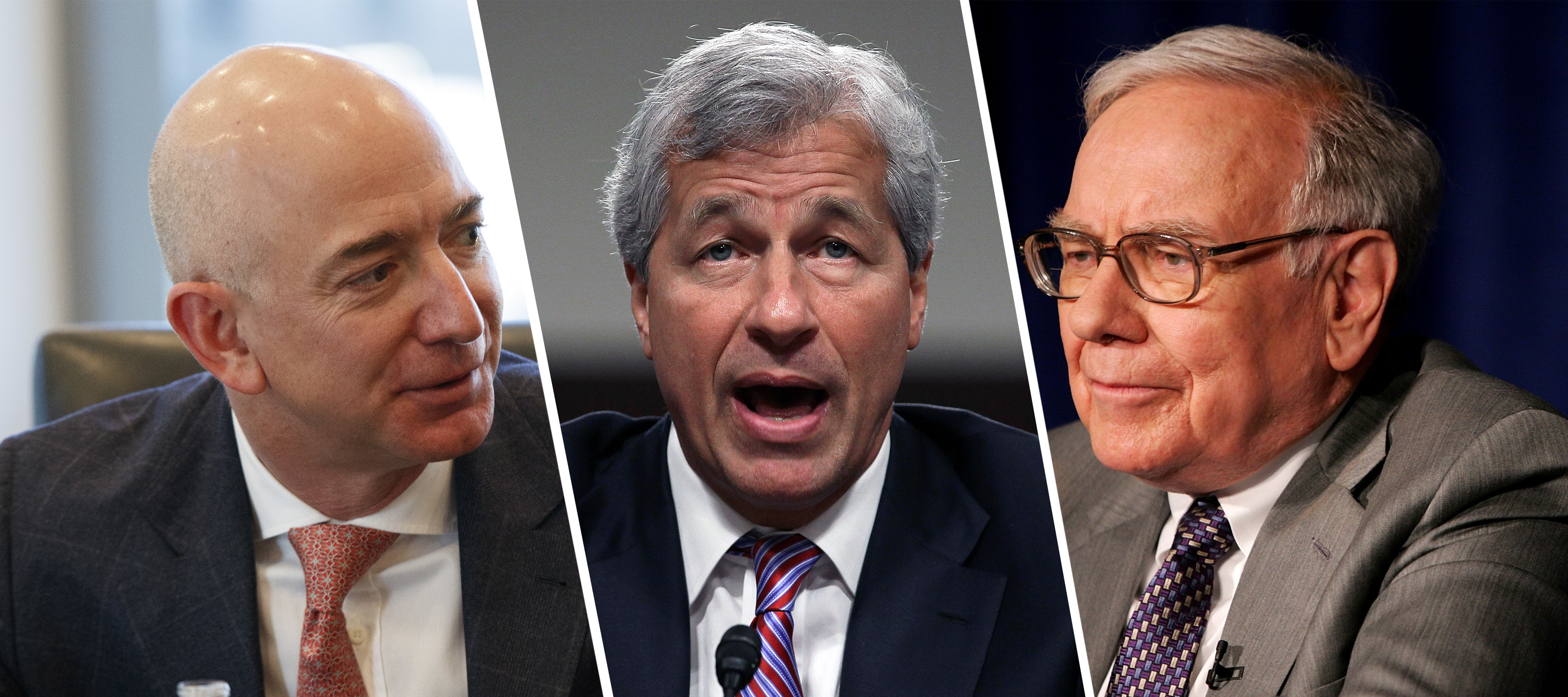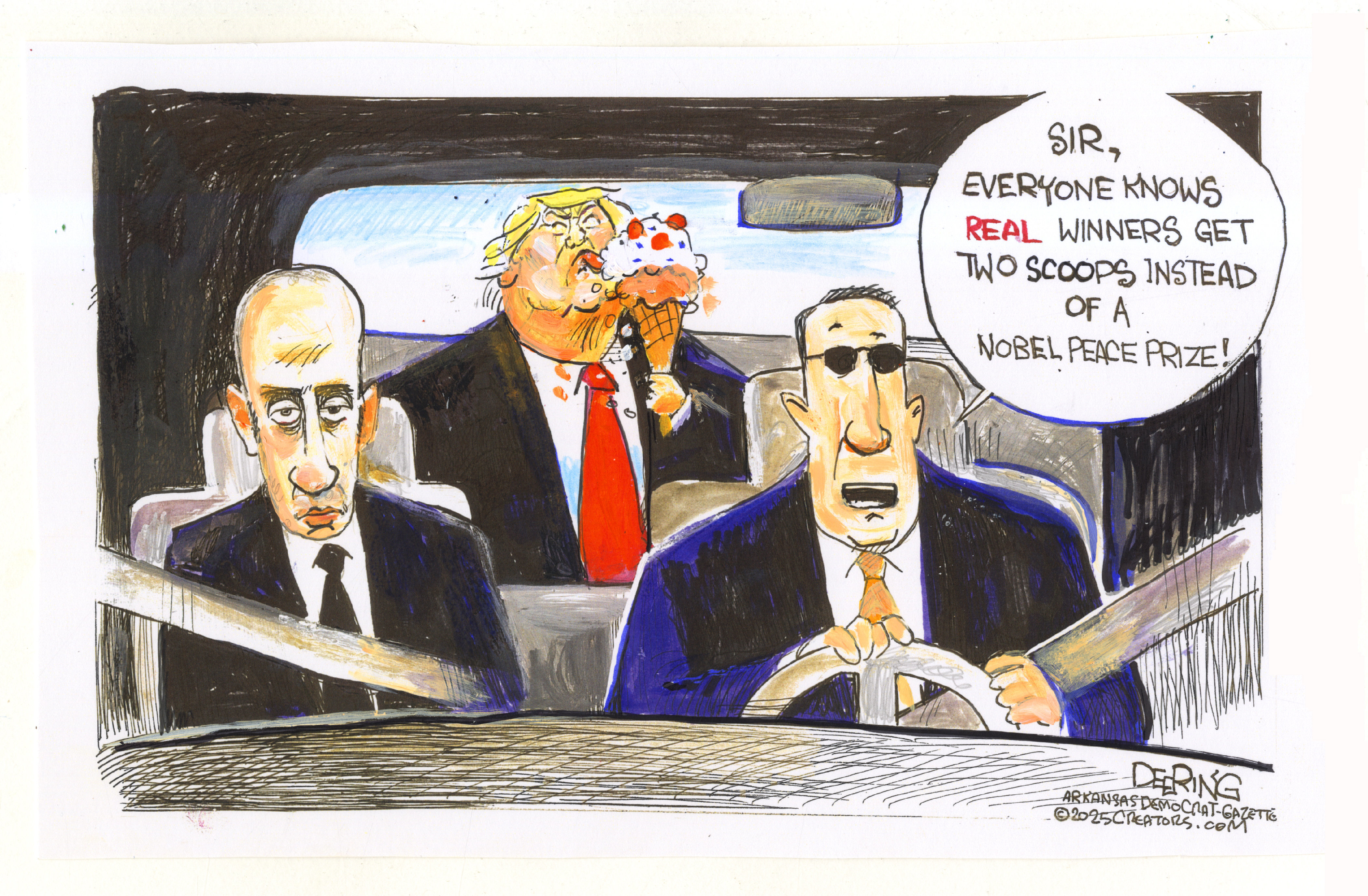Can a trio of billionaires save American health care?
It has come to this


America's health-care system is a mess. Can three billionaires save it?
Jeff Bezos' Amazon (market capitalization: $693.2 billion), Warren Buffett's Berkshire Hathaway (market capitalization: $530.5 billion), and Jamie Dimon's JPMorgan Chase (market capitalization: $399.8 billion) are teaming up to create an independent company that will provide health care for the three mega-companies' roughly 1 million combined employees. Details remain sketchy. But the news still sent shockwaves through the market. Can these titans of finance and technology revolutionize the way Americans get health care?
We don't have much to go on so far. But it sounds like the new company would combine the functions of an insurer and a provider. Employees would either pay this new company premiums — or have the premiums taken out of their paychecks — and get health coverage from the same company in return.
The Week
Escape your echo chamber. Get the facts behind the news, plus analysis from multiple perspectives.

Sign up for The Week's Free Newsletters
From our morning news briefing to a weekly Good News Newsletter, get the best of The Week delivered directly to your inbox.
From our morning news briefing to a weekly Good News Newsletter, get the best of The Week delivered directly to your inbox.
Berkshire-Amazon-Chase wouldn't be the first to pursue this model. Kaiser Permanente does something similar. And CVS's recent purchase of Aetna points in that direction as well.
This model has a lot of potential. So much of our health-care system is fractured. We bounce between different primary-care doctors and specialists and insurance systems. They have to share information on our medical history, our care, our meds, and more. It's complicated and frustrating. Lots of things fall through the cracks.
Bringing the roles of insurance and care provision under the same roof allows for better coordination. "The initial focus of the new company will be on technology solutions that will provide U.S. employees and their families with simplified, high-quality, and transparent health care," as the press release said. You could imagine this leading to more preventative care, better treatment of chronic conditions, in-home and follow-up care, electronic record-keeping, user-friendly internet consultation, and more.
But would any of that actually lower the cost of care? For instance, despite how often it gets touted, there's not a lot of evidence that more preventative care would be a big money-saver.
A free daily email with the biggest news stories of the day – and the best features from TheWeek.com
That doesn't mean preventative care and the rest aren't worth pursuing. They'd lead to healthier Americans with better quality of life. It's just that talk around reforming costs often assumes that bad consumption habits are to blame. We use too much health care, or we use it poorly. There's some truth to this. But not enough to explain why America spends a vastly larger share of its GDP on health care for no discernible edge in outcomes.
The big problem with American health care is really prices. Compared to other countries, medical devices, drugs, and even doctors' pay are all super expensive in America. This is a failure of market leverage. Over the last few decades, providers have been able to bid these prices into the stratosphere, and no one's had the power to bid them back down. If Buffett, Bezos, and Dimon want to really fix American health care, they need to figure out how to lower prices — and better technology or coordination alone won't do it.
Berkshire Hathaway, Amazon, and JPMorgan Chase employ a combined one million people. That seems like a lot of customers — except that major insurers like UnitedHealth Group, Aetna, and Anthem already have customer bases that are many, many times larger. And they haven't been able to cut drug or device prices.
Theoretically, Bezos and Co.'s new group still should have enough scale to at least try and bargain down medical device and drug prices. The "everything in house" model might also help. The company could pay its doctors and providers on a salaried basis rather than a fee-for-service one, and they could expand into more use of nurse practitioners.
But there are limits. The country needs more doctors, and licensing can constrain the supply. That will put a real cap on how much Berkshire-Amazon-Chase can bargain down pay.
Lots of reports noted that the new health-care company will be nonprofit. That might help at the margins, but the real question remains whether it can find a way to control costs.
The underlying irony to all of this hubbub is that the very arguments being deployed in favor of this new health-care company are also the arguments for "big government" solutions. After all, if you want scale to negotiate prices, no one's bigger than the government bargaining for the entire American population.
But for the moment, big government solutions are off the table. Let's see what Buffett, Bezos, and Dimon can achieve by joining forces.
Jeff Spross was the economics and business correspondent at TheWeek.com. He was previously a reporter at ThinkProgress.
-
 October 13 editorial cartoons
October 13 editorial cartoonsCartoons Monday's political cartoons include Donald Trump's consolation prize, government workers during shutdown, and more
-
 Can Gaza momentum help end the war in Ukraine?
Can Gaza momentum help end the war in Ukraine?Today's Big Question Zelenskyy’s request for long-range Tomahawk missiles hints at ‘warming relations’ between Ukraine and US
-
 The Israeli hostages and Palestinian prisoners being released
The Israeli hostages and Palestinian prisoners being releasedThe Explainer Triumphant Donald Trump addresses the Israeli parliament as families on both sides of the Gaza war reunite with their loved ones
-
 Ghislaine Maxwell: angling for a Trump pardon
Ghislaine Maxwell: angling for a Trump pardonTalking Point Convicted sex trafficker's testimony could shed new light on president's links to Jeffrey Epstein
-
 The last words and final moments of 40 presidents
The last words and final moments of 40 presidentsThe Explainer Some are eloquent quotes worthy of the holders of the highest office in the nation, and others... aren't
-
 The JFK files: the truth at last?
The JFK files: the truth at last?In The Spotlight More than 64,000 previously classified documents relating the 1963 assassination of John F. Kennedy have been released by the Trump administration
-
 'Seriously, not literally': how should the world take Donald Trump?
'Seriously, not literally': how should the world take Donald Trump?Today's big question White House rhetoric and reality look likely to become increasingly blurred
-
 Will Trump's 'madman' strategy pay off?
Will Trump's 'madman' strategy pay off?Today's Big Question Incoming US president likes to seem unpredictable but, this time round, world leaders could be wise to his playbook
-
 Democrats vs. Republicans: which party are the billionaires backing?
Democrats vs. Republicans: which party are the billionaires backing?The Explainer Younger tech titans join 'boys' club throwing money and support' behind President Trump, while older plutocrats quietly rebuke new administration
-
 US election: where things stand with one week to go
US election: where things stand with one week to goThe Explainer Harris' lead in the polls has been narrowing in Trump's favour, but her campaign remains 'cautiously optimistic'
-
 Is Trump okay?
Is Trump okay?Today's Big Question Former president's mental fitness and alleged cognitive decline firmly back in the spotlight after 'bizarre' town hall event
